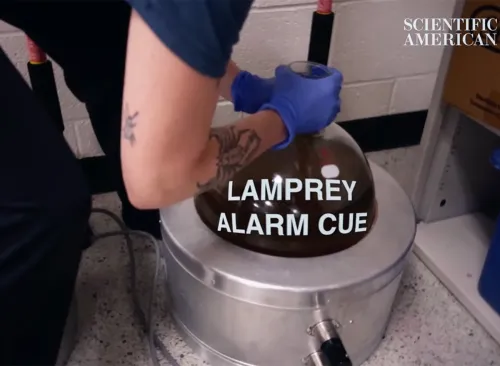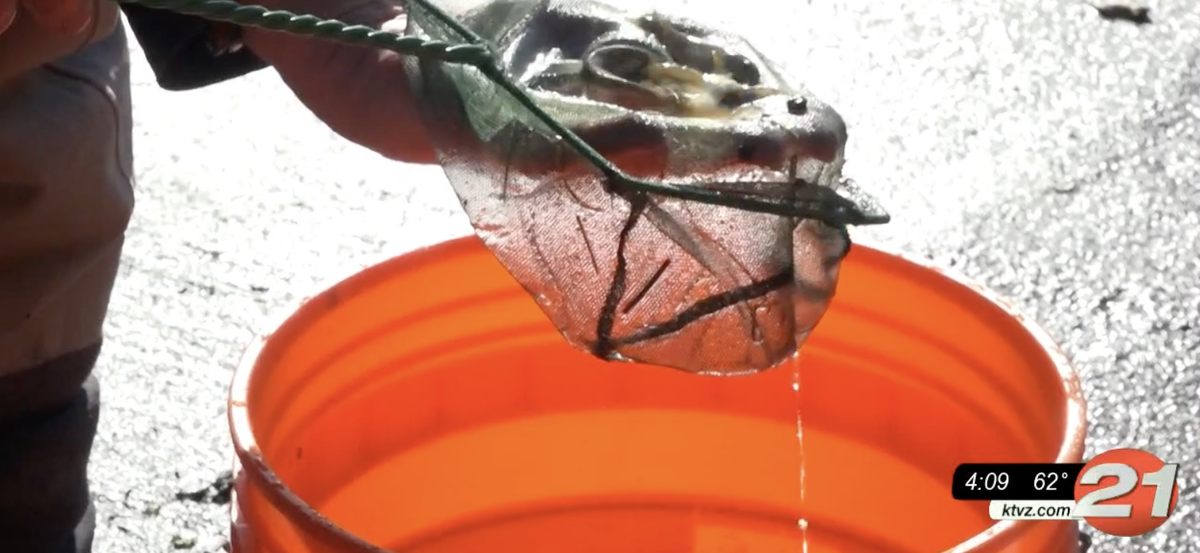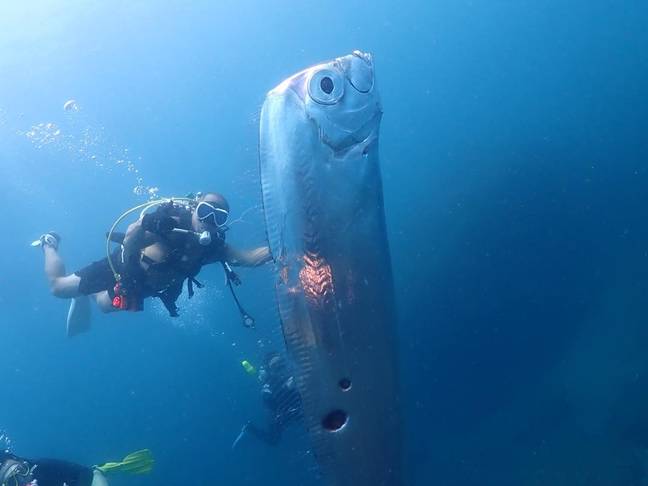Why Nigeria, other West African countries must battle illegal fishing

The United Nations Local weather Improve Conference’s (COP26) inclusion of the requirement for healthier oceans was welcome news. Nevertheless, in spite of some noteworthy calls for motion just before and during the event, inadequate emphasis was placed on the great importance of conserving fish, fisheries and maritime ecosystems.
The 2019 Africa Blue Economic system System lists fisheries and aquaculture as 1 of seven important places for producing sustainable blue economies. Fishing is witnessed as a relatively untapped sector for Africa’s development and prosperity. It is not likely to bear fruit although, unless the exploitation of marine resources is curbed. Illegal fishing normally takes diverse forms, but massive-scale industrial operators do the most harm to ecosystems and the ecosystem.
Local weather alter worsens the results of overexploited fish stocks, limiting their ability to regenerate. Specified the present-day disaster, urgent steps are essential in vulnerable coastal communities, especially in West Africa in which piracy, armed robbery and kidnapping are rampant.
Illegal fishing in West Africa is a challenge on three concentrations. First, it jeopardises the administration of fish inventory by disrupting regulatory processes. To attain a sustainable fishing sector, nations ought to deal with the progress and depletion of fish stocks, enforce security and operational rules, and delineate spots for fishing and conservation.
Illegal fishing undermines rising blue economic system initiatives across Africa, costing states billions in shed revenue. Mauritania, Senegal, The Gambia, Guinea Bissau, Guinea and Sierra Leone alone reduce US$2.3 billion per year to unlawful fishing.
The next problem is the hurt to foods protection in coastal communities, wherever fish provides a substantial source of sustenance and, for some, their only income. And third, unlawful fishing erodes local community believe in in regulation enforcement, creating a sense of lawlessness and neglect. This is an environment in which organised crime thrives, and with each other with a decline of livelihoods, can gas nearby-stage violence and other criminality.
For occasion, rampant illegal fishing off Somalia’s coast, coupled with lawlessness, resulted in local fishers having up arms to attack foreign fishing vessels in Somali waters. These vigilante groups were 1 of the precursors to piracy in the location. This serves as a warning to West Africa, the place steady coastal instability could worsen the piracy scenario.
As the worldwide demand for fish raises, it is possible that so too will the incursions of overseas fleets into African waters. Non-African nations around the world engage in a significant function when they change a blind eye to their industrial fishing fleets venturing into African waters. Point out fishing subsidies also boost unlawful fishing by enabling fleets to sail and work any place in the planet.
What will make this problem complicated to offer with is that lawfully, ships notice the regulation of their flag states. Without the need of the active support of flag states, it is extremely hard to tackle industrial illegal fishing in Africa. Some development has been accomplished although. For example in 2015, Spain enforced harsher punishment for its citizens included in illegal, unreported and unregulated fishing. China has designed a blacklist and pledged to position harsh sanctions on illicit operators and their corporations.
To combat threats to their ecosystems and fisheries sectors, African states need to be much more energetic in ongoing Planet Trade Business negotiations to conclusion unsafe and unsustainable fishing subsidies. Non-African states have to recognise that their shorter-time period gain-pushed strategy erodes maritime stability, especially in West Africa. This will ultimately problems their interests in other sectors, this kind of as shipping and delivery.
Most African states do not have more than enough means to monitor and manage their broad unique financial zones. So tackling illegal fishing depends on cooperation, as weaker attempts in one particular region can undermine fisheries administration actions in a neighbouring state.
This is a job that the Financial Local community of West African States (ECOWAS) can guide on, to shield West Africa’s blue economic climate prospects. Driven by the will need to suppress piracy, ECOWAS states a short while ago created important development in improving their potential to detect, respond to, and prosecute maritime crimes.

The location is also household to the Sub-Regional Fisheries Fee and the Fisheries Committee for the West Central Gulf of Guinea, covering the maritime domains of the ECOWAS states. These institutions were established to keep track of fishing vessels functioning in the location and aid the fight versus illegal fishing. But far more function is necessary, and threats will carry on with no a holistic method to maritime stability.
Lastly, West African states can take a proactive stage by signing up for founded mechanisms to combat unlawful fishing. The Foodstuff and Agriculture Group Agreement on Port Condition Measures (PSMA) is an vital world wide initiative to block fishing vessels from landing unlawful catch in ports subject to the agreement.
When signatories robustly enforce the PSMA, it creates a major deterrence and disincentive to illicit fishing vessels, partly by denying them ports and proscribing their accessibility to marketplaces. Encouragingly, 12 out of 27 African condition events to the PSMA are from West Africa. To have a genuine affect even though, Nigeria – a main regional player – will have to also ratify the agreement.
Denys Reva, Researcher and David Willima, Exploration Officer, Maritime, Institute for Security Studies (ISS) Pretoria
(This short article was initially released by ISS Now, a Quality Instances syndication spouse. We have their permission to republish).
Help Top quality TIMES’ journalism of integrity and credibility
Excellent journalism costs a ton of revenue. Still only excellent journalism can be certain the possibility of a superior society, an accountable democracy, and a transparent federal government.
For continued no cost entry to the very best investigative journalism in the nation we talk to you to take into account making a modest assist to this noble endeavour.
By contributing to Premium Times, you are aiding to maintain a journalism of relevance and making certain it continues to be totally free and readily available to all.
Donate
Text Ad: To promote right here . Connect with Willie +2347088095401…







